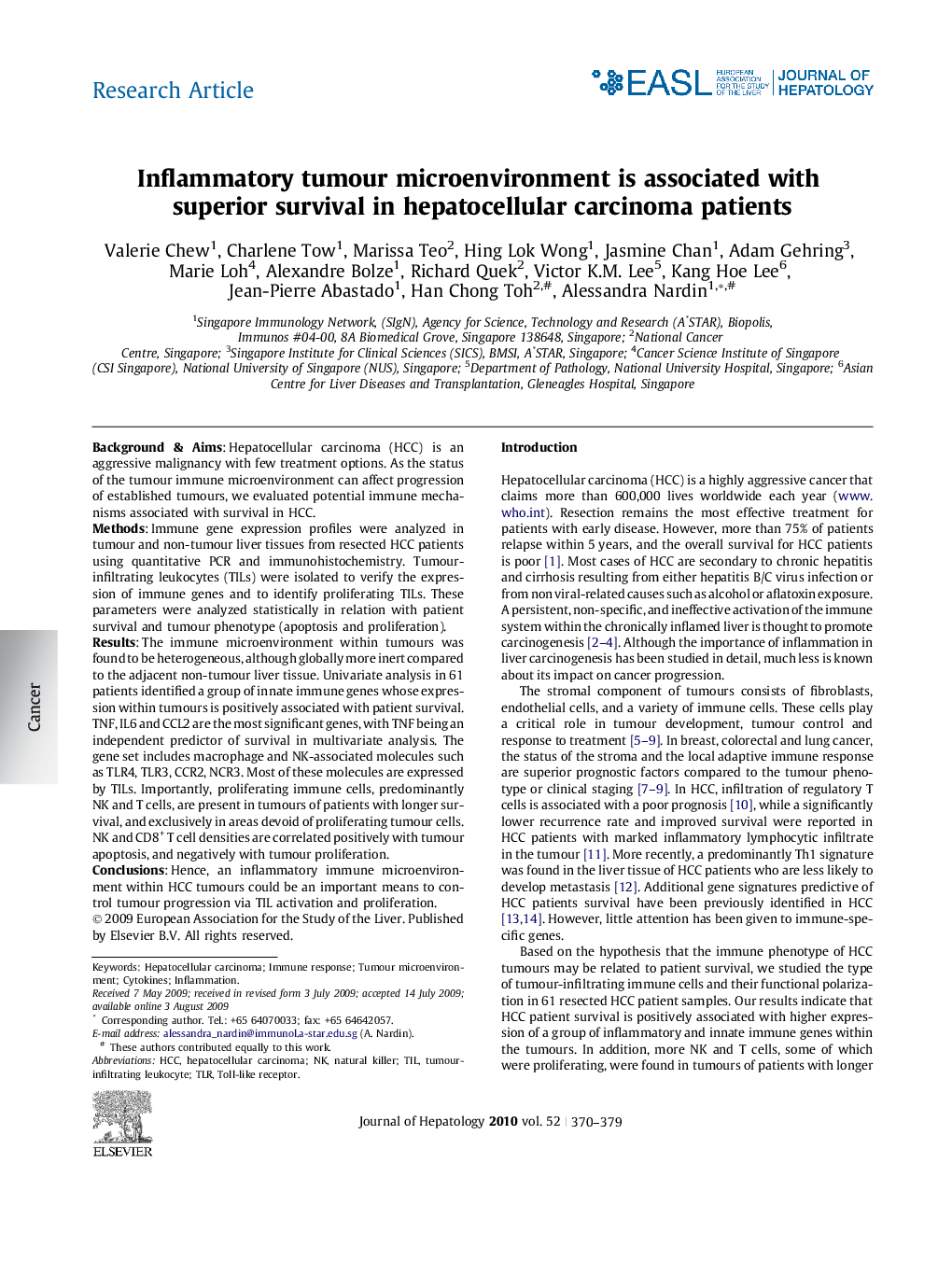| Article ID | Journal | Published Year | Pages | File Type |
|---|---|---|---|---|
| 6109546 | Journal of Hepatology | 2010 | 10 Pages |
Background & AimsHepatocellular carcinoma (HCC) is an aggressive malignancy with few treatment options. As the status of the tumour immune microenvironment can affect progression of established tumours, we evaluated potential immune mechanisms associated with survival in HCC.MethodsImmune gene expression profiles were analyzed in tumour and non-tumour liver tissues from resected HCC patients using quantitative PCR and immunohistochemistry. Tumour-infiltrating leukocytes (TILs) were isolated to verify the expression of immune genes and to identify proliferating TILs. These parameters were analyzed statistically in relation with patient survival and tumour phenotype (apoptosis and proliferation).ResultsThe immune microenvironment within tumours was found to be heterogeneous, although globally more inert compared to the adjacent non-tumour liver tissue. Univariate analysis in 61 patients identified a group of innate immune genes whose expression within tumours is positively associated with patient survival. TNF, IL6 and CCL2 are the most significant genes, with TNF being an independent predictor of survival in multivariate analysis. The gene set includes macrophage and NK-associated molecules such as TLR4, TLR3, CCR2, NCR3. Most of these molecules are expressed by TILs. Importantly, proliferating immune cells, predominantly NK and T cells, are present in tumours of patients with longer survival, and exclusively in areas devoid of proliferating tumour cells. NK and CD8+ T cell densities are correlated positively with tumour apoptosis, and negatively with tumour proliferation.ConclusionsHence, an inflammatory immune microenvironment within HCC tumours could be an important means to control tumour progression via TIL activation and proliferation.
